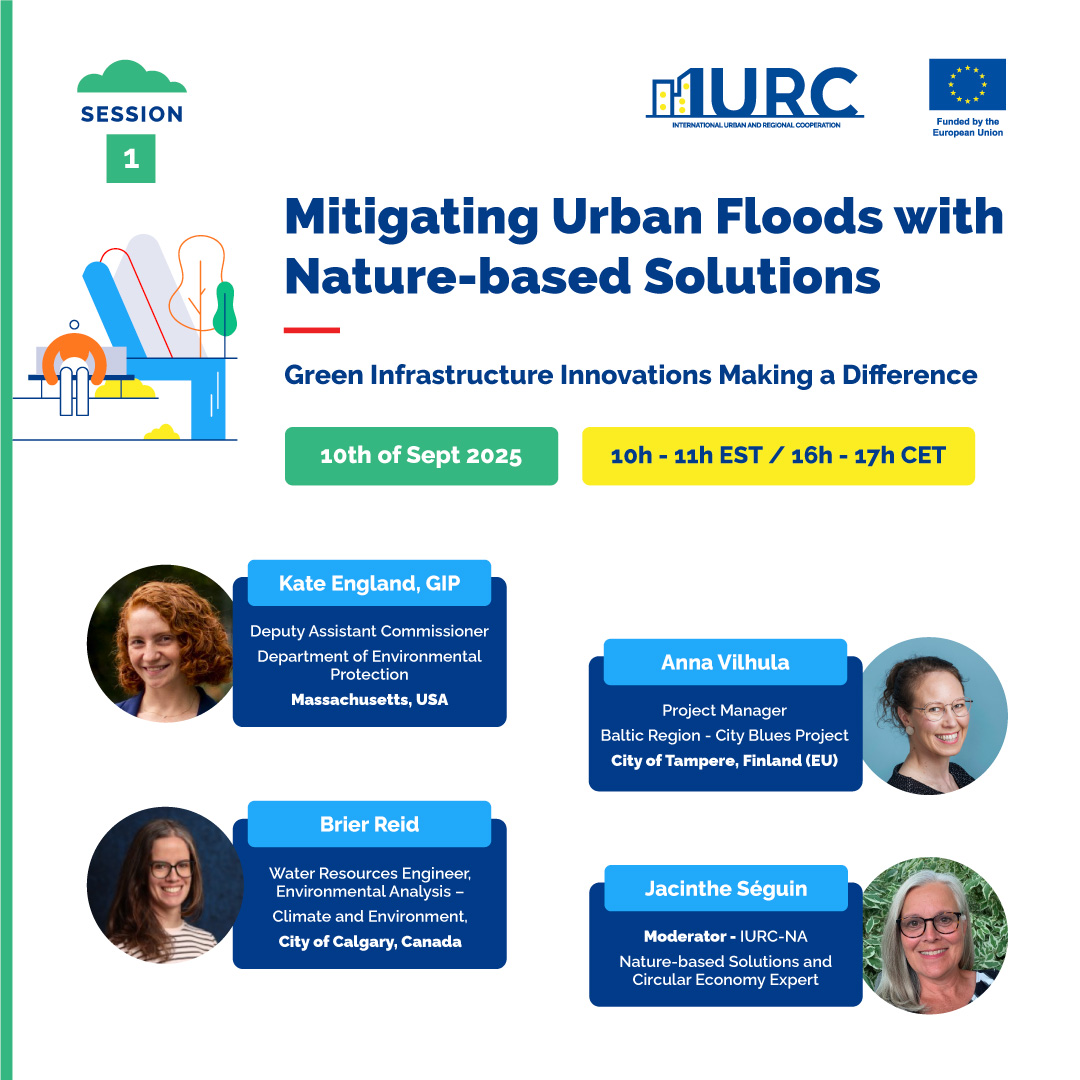September 11th, 2025
Watch the insightful webinar on YouTube.
As part of the International Urban & Regional Cooperation North America programme, this webinar marked the first session of the Nature-based Solutions (NbS) Thematic Network, bringing together cities from the EU, Canada, and the USA to share innovative approaches for managing urban flooding risks.
The session explored how green and blue infrastructure can reduce stormwater impacts, improve community resilience, and integrate nature-based strategies into city planning.
Urban flooding is increasingly exacerbated by extreme rainfall, impervious surfaces, and climate change. Nature based Solutions such as rain gardens, constructed wetlands, bioretention swales, green roofs, and resilient landscaping offer low-energy, multifunctional, and low-emission strategies for managing stormwater.
Featured Speakers
Kate England – Deputy Assistant Commissioner, Massachusetts Department of Environmental Protection, USA
- Shared Boston’s extensive experience implementing green infrastructure to reduce urban flooding.
- Discussed regulatory adaptation, community engagement, and scaling up NBS across the city.
- Highlighted the Massachusetts Ecosystem Climate Adaptation Network (Mass ECAN) for ecosystem resilience and natural resource conservation.
Brier Reid – Water Resources Engineer, City of Calgary, Canada
- Provided Calgary’s experience with flood resilience plans and challenges in reducing flood risks.
- Shared the city’s approach in using NBS as part of their Stormwater Management Strategy
On behalf of Anna Vilhula – Project Manager, City Blues Project, Tampere, Finland, Jacinthe Séguin, IURC-NA Expert delivered the City Blues Project (2023-2026) presentation. The Project co-funded by the EU and the Interreg Baltic Sea Region aims to pilot various nature-based solutions in five cities across the Nordic Region to reduce flooding risks and improve quality of life and develop web-based tool for cities on involving stakeholders and managing stormwater through nature-based solutions.
Key Takeaways
- Nature-based solutions offer multifunctional approaches to urban stormwater management.
- Successful implementation requires policy support, community engagement, and data-driven planning.
- Sharing experiences across cities allows for transferable lessons and scaling of best practices.
- Peer networks like the IURC-NA NBS Thematic Network play an important (or necessary, or essential) part in facilitating knowledge exchange and capacity building.
📄 Download the presentation slides
Read the Factsheet from our webinar and explore the latest strategies for mitigating urban floods with nature-based solutions:
